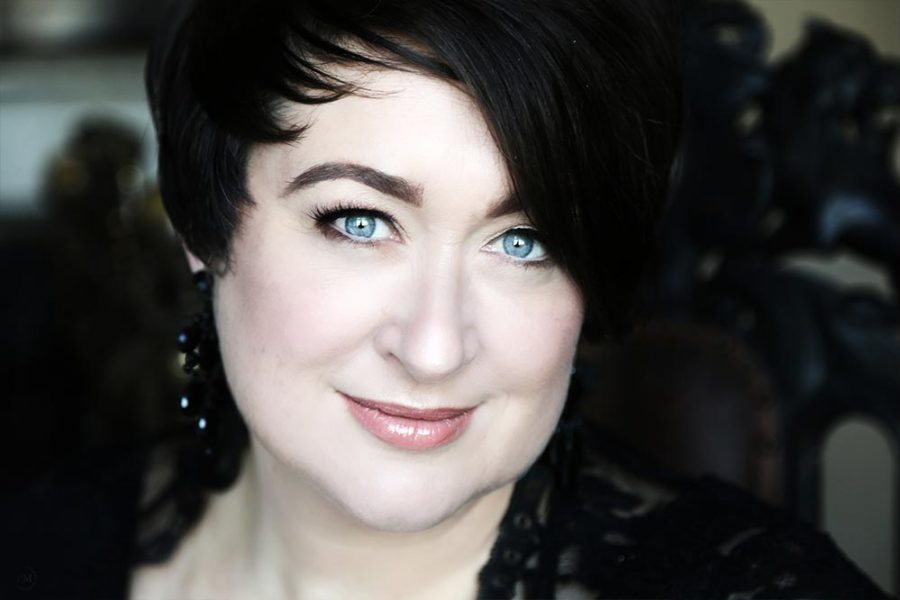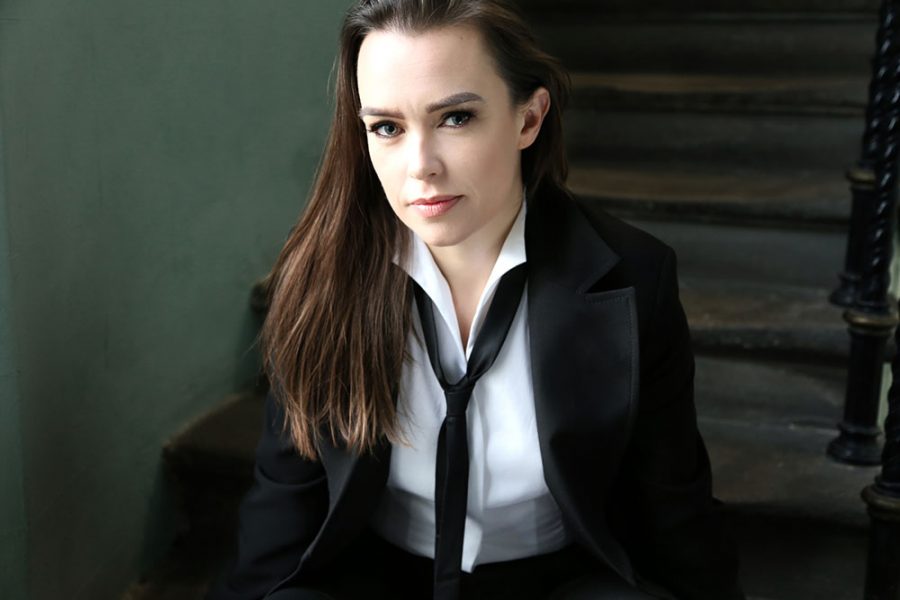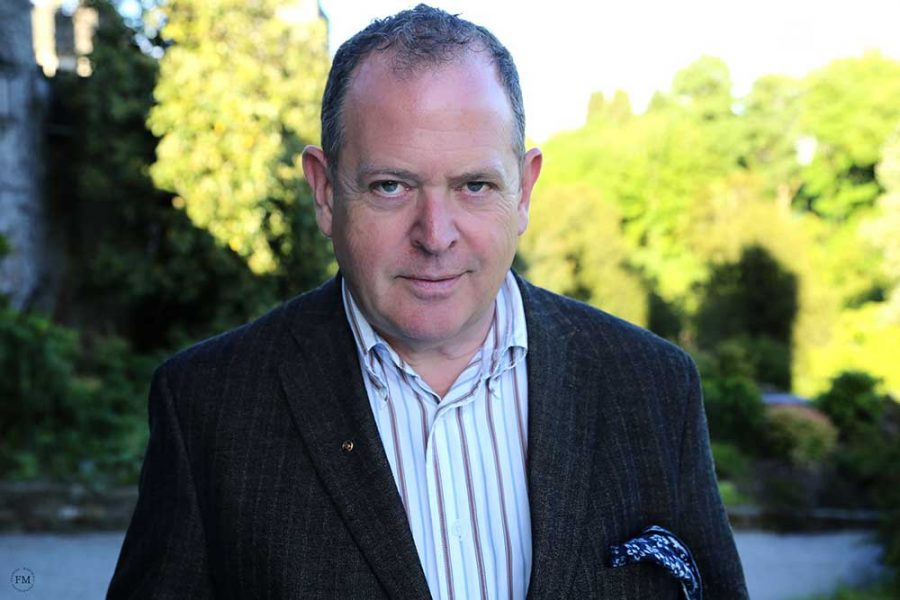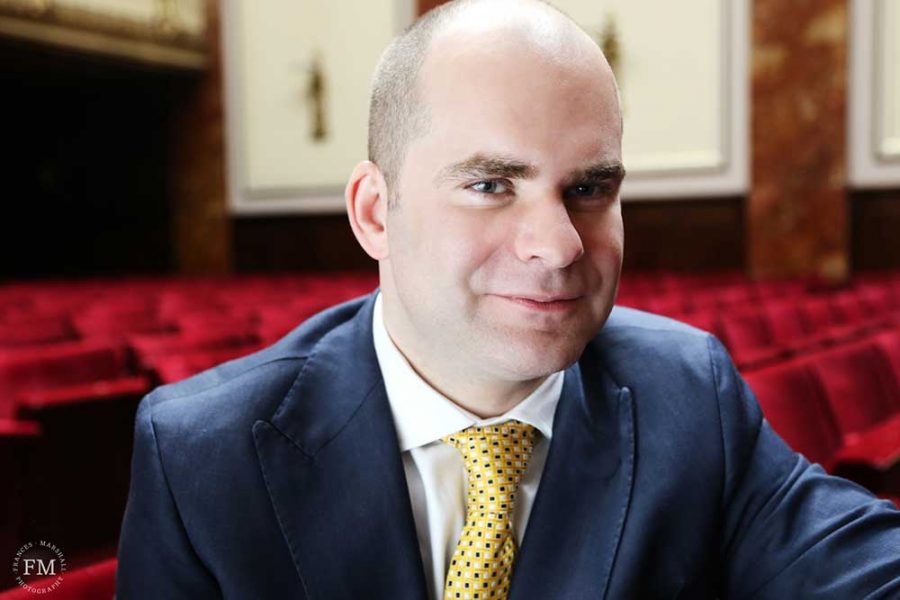Unstoppable Vision with Fergus Sheil

November 2018
Interview and photos by
Frances Marshall
Share this article
Described as “sensitive” and “superb”, Fergus Sheil is a self-made success. While simply being brave has led to his enormous climb, putting himself last has been a key factor in establishing the trailblazing Irish National Opera.
We caught up with Sheil at his Dublin offices in advance of the upcoming production of Aida, to discuss the art of convincing others, stress management and what made him leap into the world of arts production.
I used to look at the conductor and think that their instrument was the orchestra, which just fascinated me."

You decided to become a conductor at 14, what led you to this decision?
I played the violin and viola from when I was about 10. I just adored playing in the youth orchestra, I loved the social aspect and I got such a kick out of the music. My dad was a huge classical music fan and my exposure to music was mainly classical – sounds very nerdy, but it’s true. I used to look at the conductor and think that their instrument was the orchestra, which just fascinated me – it was similar to watching Concorde taking off.
From researching your career, nothing seems accidental. All your experience seems like it was heading towards the direction of getting to where you are now…
Well, I suppose if you look back it does seem like that, and from an outside perspective it looks like I knew what I was going to do all along, but believe me, it didn’t feel like that. When I was a teenager I was playing with any orchestra that would have me. I then got an opportunity to conduct in Trinity College Dublin, where I started the Trinity Orchestra in 1989. Opera was never part of my life as a teenager, but when I graduated I had a master plan to be a conductor.
You then worked behind the scenes at Wexford Festival Opera. Tell us about how this developed your skills?
When you graduate you suddenly have little to do and a friend of mine told me to go to Wexford. Now I’ll be honest, I knew very little about the festival and I hadn’t even seen a production. I wrote to their artistic director Elaine Padmore, who was very nice but said they don’t employ assistant conductors, so I said “can I do it for free?” and she agreed.
I fell into opera by accident, but I remember absolutely falling in love with it in Wexford because I was working with people like Francesca Zambello and it made me realise how wonderful it was to be part of this machine – it all clicked. The singing was the connection to the emotion, meaning and reality. It was like a banquet and I never recovered, I was obsessed.
From the way you describe your intentions – it’s never about you, it’s about the cause. Is that why you’ve done so well?
It’s about opera and great experiences and hopefully getting people interested. I do consciously avoid the limelight, but obviously there are times I have to be in it as I’m the leader of the company, but I don’t want to over do it. I generally prefer to put forward the artists involved for media coverage.
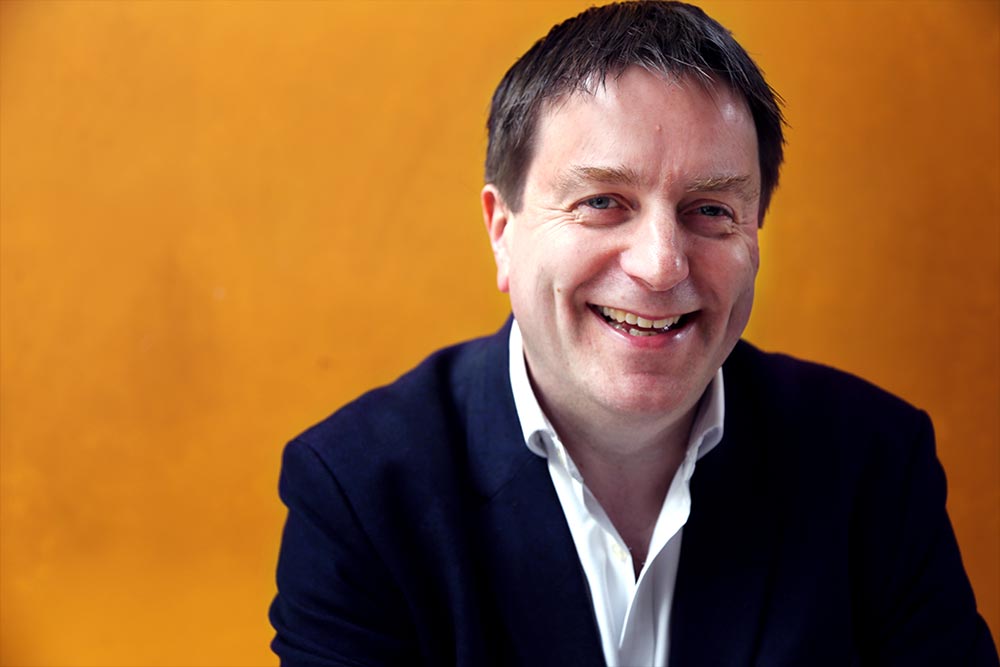


It was like going for piano lessons with no piano in the room, you have an imaginary orchestra and I would be conducting in front of him in thin air."

Can you pinpoint one person who gave you exposure to international standards at a young age?
Wexford definitely did, but the person would be Léon Barzin who was my conducting teacher, born in 1900 and I studied with him in Paris for about four years. He had worked with Toscanini, Stravinsky, Bartók and all these legendary figures. However, his main passion was for training young conductors. He was a real technocrat and was obsessed with your toes and knees along with the back. He was so aware of how the arms were related to everything, along with all the tiny gestures and how these movements were connected and so powerful when determining how the music would be played.
Barzin was an old school tyrant, he’d shout and roar but then invite you for dinner and be your best friend, until the following morning when you’d be back for round 2 combat. It was like going for piano lessons with no piano in the room, you have an imaginary orchestra and I would be conducting in front of him in thin air. It’s the biggest challenge for a conductor, you can’t practise eight hours a day because you don’t have an orchestra for that time. You can do a certain amount of preparation, but you unfortunately have to learn on the job.
Did he help you to visualise yourself existing as a professional in the classical music world?
Absolutely, his dinner parties were almost as influential as his lessons. He would tell me amazing stories about the heroes of the industry and when someone like him is so casually talking about being an assistant for Toscanini, who was the assistant to Verdi – he made it seem possible. He also had such belief in the power of music and he was unapologetic about passing it on to whoever he trained. He was in his 90’s, but completely alive and brilliant. To this day I get comfort in knowing that this guy had faith in me.
Tell us about your time as chorus master with Scottish Opera.
I went to Scottish Opera in 1998 and stayed there for 4 years – it was great! Everything was being done ‘on a wing and a prayer’ in Ireland, but in Scotland there was a level of professionalism that I hadn’t been exposed to. With about 8-10 productions a year it was a full time job and I spent every day in opera rehearsals, which was a real joy. It felt like a degree in opera, and I worked alongside some really great people. I also studied Italian and German while I was there.
That level of expertise still doesn’t exist in Ireland and that’s our challenge now. We’re at a starting block in the whole business of running an opera company in this country.
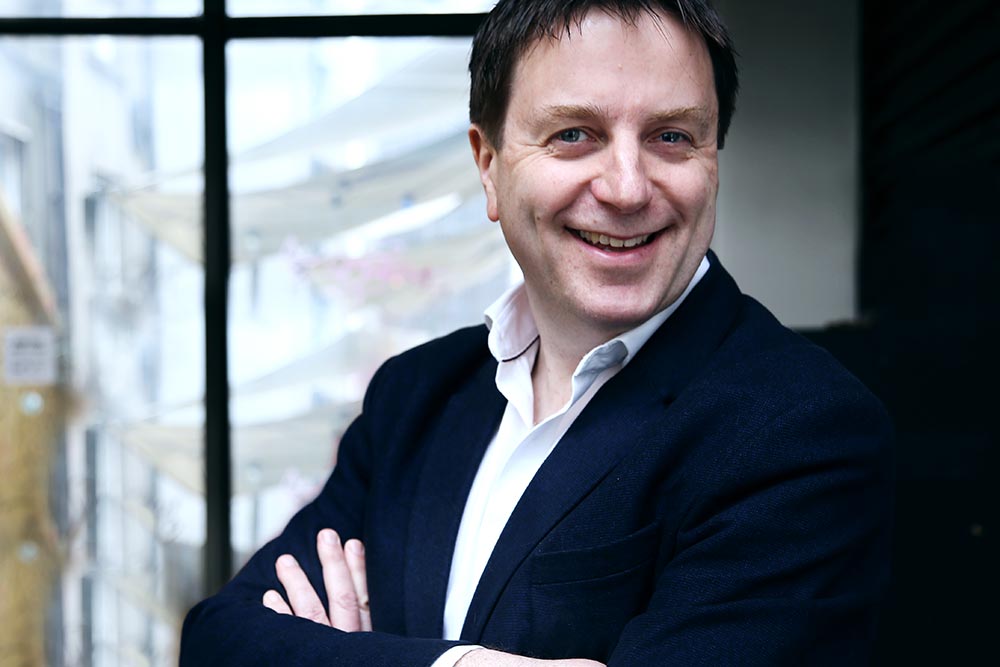


You need to collaborate with great people because this career is about constantly learning and improving yourself and I'm learning every day."

You worked as a music specialist for the Arts Council. What advice do you have for artists applying for funding today?
Be brave. If you have a good idea go for it, don’t water it down and play it safe because it’s all about the quality of the idea. When you’re on a panel you’re looking at an enormous variety of applications, however the people who presented a really interesting artistic idea were the ones you hung onto. I didn’t control the budgets so I saw my job as an advocate and if someone had a good idea, we’d move heaven and earth to make it happen. Over time I learned a lot about the psychology of how to convince people about ideas.
It’s also important to be aware of the likely level of funding. For example, if you see in the previous year that The Project Award allocated ten awards and the average amount was €30,000 that means there’s a total pot of €300,000. Try not to scrape by on a project that needs €60,000, do something different and amazing for €30,000 and apply for that amount. Don’t ask for €200,000, you’re not going to get it. Do your research and involve as many people as you can.
In terms of funding, or competitions, or jobs, or any opportunity that comes your way, I’ve certainly gotten a ’no’ for 90% of things I’ve applied for, but you just keep going – you don’t get anywhere if you can’t handle the rejections. I’m lucky now that I don’t have to apply for every single production, but I’ve been ploughing away for 20 years.
You’ve made some incredibly brave decisions in your career including programming Tristan und Isolde for Wide Open Opera’s first production. Not only were you conducting this enormous work, you were also running the company, how did you make it happen?
Well I wanted to be very ambitious with that project. I had never produced an opera before and I knew I’d never have been funded on my own. So I surrounded myself with people who made it look far more plausible. Number one was listing a cast who could sing it, this was obviously crucial.
We had the backing of the Dublin Theatre Festival and the real game-changer was the support of Stephen Faloon of the Bord Gáis Energy Theatre. Many people didn’t believe it could be done, including ourselves… (laughs) we were all shocked when we got the money to do it! But I had the hook that this masterpiece was actually based on an Irish Princess and that the opening of the opera is set on a boat between Ireland and England – I played it up as much as I could. Also Miriam Murphy was going to be the first Irish singer ever in history to sing that role of Isolde.
I had to take myself out of the equation because I’m not important at all in the grand scheme of things. I made it about Miriam, the Bord Gáis Energy Theatre, Wagner and the Dublin Theatre Festival. At the time of application I didn’t have the RTÉ National Symphony Orchestra involved, but I did demonstrate where I could get the orchestra from. I made it about all these other things, even though I was conducting it. So it passed.
Another important factor was that the Arts Council were in the mood for something ambitious. This was a new award at the time. Opera Ireland had closed down and there was a lack of main-scale opera in Dublin, so it seemed possible. The moment they decided to fund it was utterly life-changing for me. I’ll never forget getting that letter in the post, I was terrified to open it and l just looked at it for a few minutes and then I had to read it 3 or 4 times. It was a brilliant opportunity.
You need to collaborate with great people because this career is about constantly learning and improving yourself and I’m learning every day.
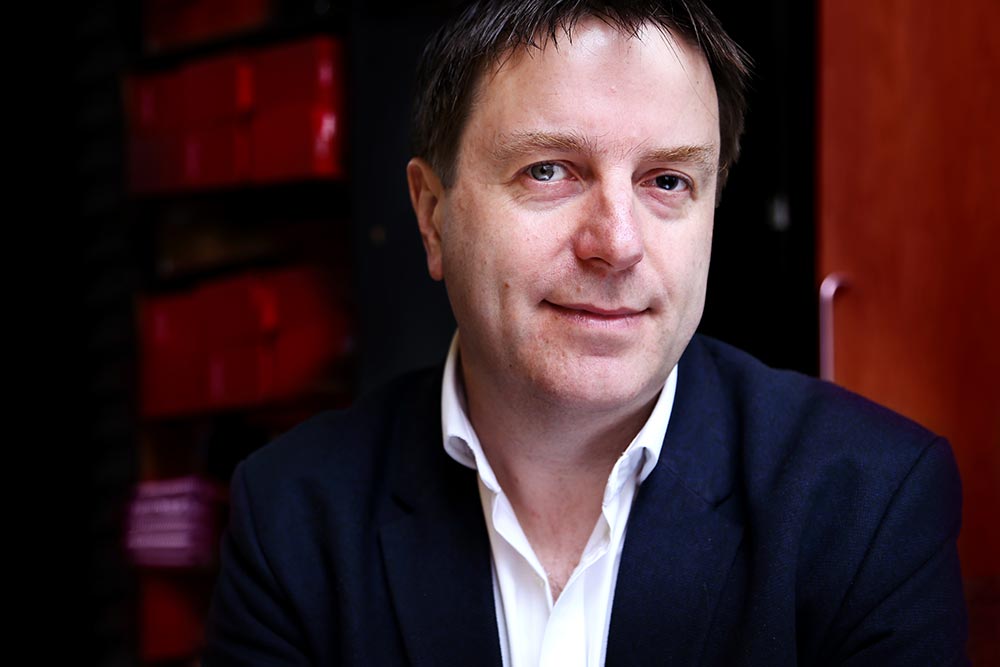

How do you handle the pressure?
I’m a pretty calm person and that’s useful, I very seldom get annoyed. I just deal with the situation and if it goes wrong, I’m quick to move on from the disappointment or annoyance into the next phase of what are we going to do about it. That’s an instant reaction I have, which is handy.
Years ago I read an article about argument and basically if you and I were to have an argument now, the object of the argument is for me to change your mind or for you to change my mind. But what happens is that we both believe that our positions are stronger and we end up further apart by the end, which is the opposite intention of the conversation. So I don’t argue with people. If someone has a different opinion to me I find a way of changing their mind rather than take them on directly. This was only strengthened with my experience in the Arts Council – it’s about convincing not arguing. So when things go wrong I don’t have an emotional response to it and I don’t feel personally slighted. I just deal with it. It’s a trait that isn’t always natural, but you can develop it.
Tell us about your journey to becoming artistic director of Irish National Opera.
Well I didn’t set out to be an artistic director of an opera company, I set out to be a conductor. When we did Nixon in China in 2014, I’d had some back surgery and my wife told me not to conduct it, because I wasn’t 100% sure whether I was going to be physically able to do it. I didn’t follow her good advice at the time and then I realised afterwards if someone else had conducted it, it wouldn’t have mattered a damn to a single person in the audience. Whether I’m conducting or someone else is conducting, it doesn’t matter once it’s done well. People go to operas for the title of the opera, a singer they like etc. But virtually nobody in Ireland is going to an opera to see the conductor.
So I became fascinated with the business of putting on the opera, drawing everyone together, deciding the programme, how it’s going to look, who’s singing, who’s directing – it became an obsession. It’s been a journey to get to this point, and I set off on a road not necessarily to get to where I am now, but I absolutely love it.
So I became fascinated with the business of putting on the opera, drawing everyone together, deciding the programme, how it's going to look, who's singing, who's directing – it became an obsession."


Tell us more about the INO Studio strand of the company.
Well there’s no age limit and that’s very important to us. There’s four singers, a conductor, director, composer and pianist. We’re really looking forward to it and it’s also part of our contribution to professionals in this sector. In terms of singers, there’s some fantastic singing teachers here and now we need to convince some of our brilliant pianists to learn the skills of becoming a repetiteur, convince composers to look at writing an opera and directors who have mainly worked in theatre but not opera. We won’t do it all in one year, but it’s about planting all the right seeds in the right places.
Irish National Opera is a year old, what has been the challenges and highlights so far?
We’re still in a honeymoon phase, people are delighted that the company exists and they wish us well. I’m so proud we’ve done seven productions already, all very different and I’m thrilled with the standard we’ve achieved.
The challenges are the boring ones. Scheduling is a big one, getting the people you want at the same time in the right venue with the right orchestras. That’s the norm to running a company, but it’s a big challenge. We’re scheduling 2020 and nearly at 2021. The issue with planning so far ahead is that it’s hard to get the rising stars because by the time you’ve got room in the schedule it’s three years away.
What advice would you give to someone wanting to start an opera company?
Just go for it. I wanted to do this ten years ago, but I kept talking myself out of it. There’s always a hundred reasons why you shouldn’t do something and there’s a thousand things that might go wrong, but at the end of the day you have to just make it happen.
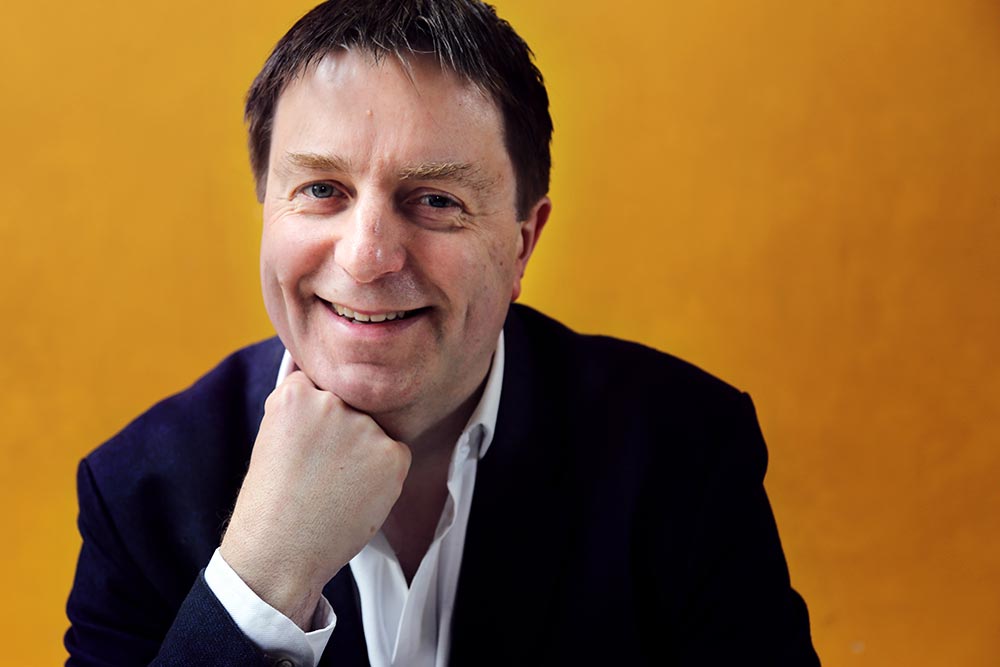

Your programming includes a weighty percentage of contemporary Irish works, how important is it to you to showcase these compositions?
Yes, we have works in the pipeline but they haven’t been announced yet. We will be focussing on Irish composers, writers and directors. Opera is by its nature an international artform, but I didn’t want to become the same as any opera company internationally. I want to demonstrate that opera is part of the Irish fabric just like literature, theatre and our other cultural strengths. It would be ridiculous to ignore so many brilliant Irish writers, composers, theatre directors and singers – we have to bring them together.
In the 19th century we had a big number of opera composers like Balfe, Wallace, O’Dwyer. Lots of opera happened in Ireland in the 17th-19th centuries and it’s fallen away, it’s become more of a French, Italian and German sport, but we have every right to claim our patch in the operatic world.
Fiona Shaw said to me recently, “now is the time for our Renaissance and Irish opera is going to be apart of that”.
You’ve done brilliant work with the Julianstown Youth Orchestra, how did this project begin and how involved are you now?
It’s a challenge, but I’ve always worked with youth orchestras of different types. I conducted Dublin Youth Orchestra, and the Julianstown Youth orchestra was a response to my wife having a number of flute students growing up and needing something to do. We have two daughters as well and when they were young we put them on a violin and a cello and started an orchestra with two violins, a cello and eight flutes…
It quickly grew to about 100 kids. I get such a kick out of it, after a long week I go down to a local school and I’ll be exhausted and something magical happens for two hours. I come home feeling completely elated because it’s an honour to introduce children to this music and you can see it in their faces when they start to get it. They get as excited as I am, it’s an amazing feeling. We’ve done loads of projects and I’ve pushed them in all sorts of ways. My own daughters are obviously older now but they still play in it with all their friends. It’s a fascinating experiment for me to see how far you can take something like that.
Almost none of the kids involved have music in their families and they’re playing bassoons and timpani. It’s incredible, you feel like you’re doing something amazing that matters and it’s challenging intellectually for them. With educational programmes of any kind you can’t shortcut them, you can’t turn up once every three weeks and think you’re going to have the same results. For me it’s all about presentism – I have to be present and I have to be there, and if I want them to commit I have to be committed to it. So it’s a huge challenge to maintain, but I do it voluntarily. Many dad’s go out on a Saturday and coach a football team, I can’t play football so I do the orchestra and I’ll do it for as long as I can.
How do you balance your time between conducting and arts administration?
I work 70 hours of the week. There’s no other way. It’s a challenge but I’m not complaining, I enjoy my work.
What’s next for you and Irish National Opera?
Our next big outing is Aida opening this Saturday 24th November, which I’m conducting.
We have just announced our first five operas for 2019 and we have lots more plans for later in 19 and 20, including new commissions. We want to expand the amount that we do and we want to go to more places and do more things. There’s lots of exciting news about international appearances as well. We’ll also continue to make sure that we’re seen in more places in Ireland. This year we’ve visited 13 venues, next year we want that number to be over 20. We want to have more of a national footprint and we want to be revisiting these locations regularly once or twice a year. So that’s our main focus to develop a presence around the country while having a whole range of repertoire and continue to commission new works. We’re so passionate about championing Irish artists and developing the relationship with our artistic partners. We’ve done lots of international launches and we’re planning some in the US. It’s all about telling the story wider and further around the world and in Ireland.
I want to demonstrate that opera is part of the Irish fabric just like literature, theatre and our other cultural strengths. It would be ridiculous to ignore so many brilliant Irish writers, composers, theatre directors and singers – we have to bring them together."

To find out more about upcoming INO productions: www.irishnationalopera.ie
All images displayed in this article are subject to copyright.
Share this article


